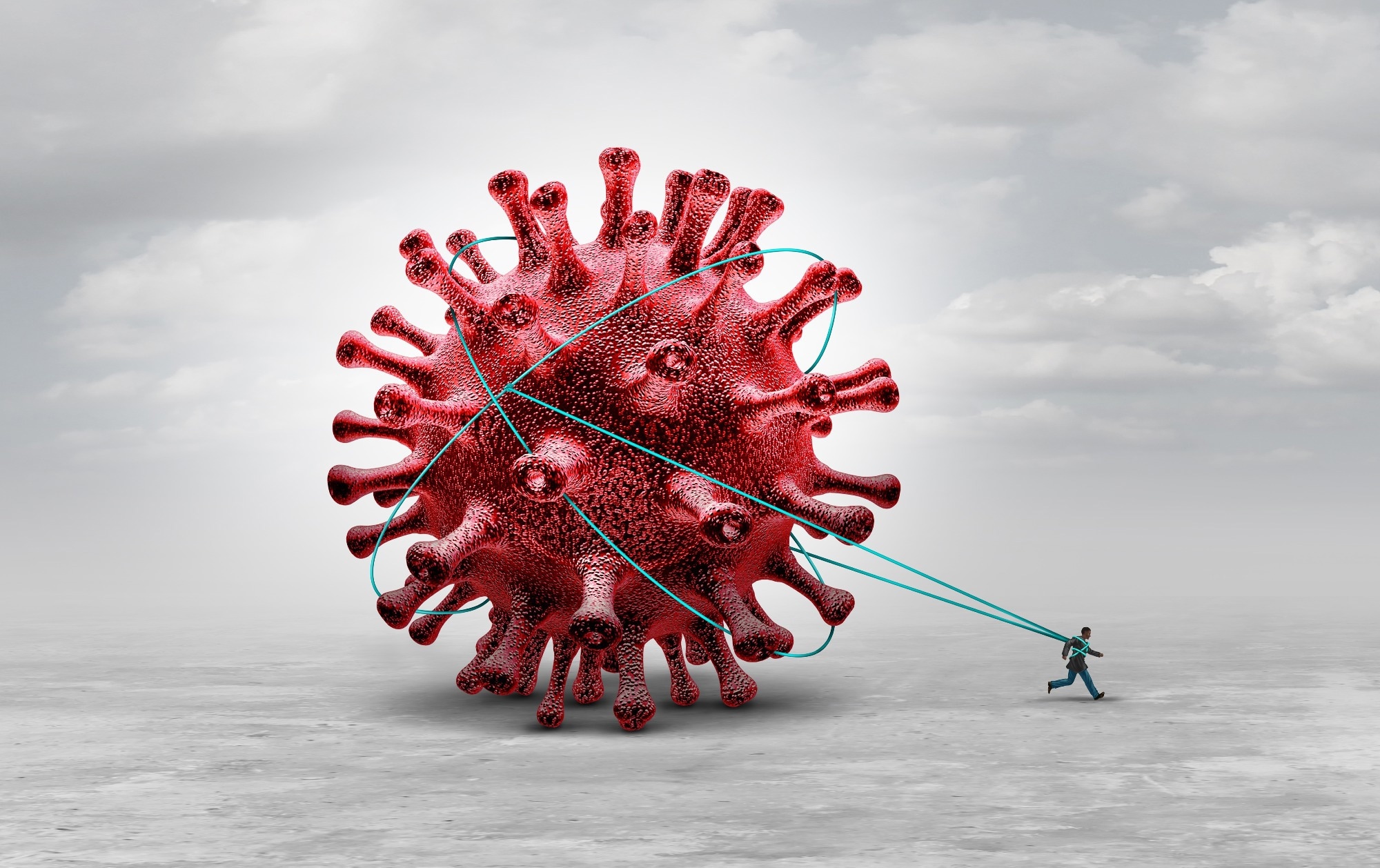In a recent study published in the journal Science Advances, researchers in the United Kingdom investigated the levels of interferon-γ (IFN-γ) in blood samples of patients with long coronavirus disease 2019 (long COVID). They found that patients with long COVID exhibited persistently elevated levels of IFN-γ from peripheral blood mononuclear cells (PBMCs) mediated by T-cells. Further, they found that symptom improvement correlated with decreased IFN-γ production.
 Study: Spontaneous, persistent, T cell–dependent IFN-γ release in patients who progress to Long Covid. Image Credit: Lightspring / Shutterstock
Study: Spontaneous, persistent, T cell–dependent IFN-γ release in patients who progress to Long Covid. Image Credit: Lightspring / Shutterstock
Background
Long COVID, characterized by persistent and diverse symptoms after infection with severe acute respiratory syndrome coronavirus 2 (SARS-CoV-2), lacks clear diagnostic criteria and approved treatments. Prevalence rates vary widely due to differing definitions. Severity of the initial infection does not correlate with progression to long COVID. While some patients improve spontaneously, many experience ongoing or worsening symptoms. Anecdotal reports suggest that vaccination may influence symptom progression. This calls for urgent research into the underlying pathophysiology and potential biomarkers of long COVID. Therefore, researchers in the present study analyzed cytokine secretion from PBMCs in long COVID patients, controls, and acute infection survivors to explore disease mechanisms and identify diagnostic markers. This comprehensive approach sought to address the diagnostic challenges and advance the understanding of long COVID.
About the study
A total of 54 unexposed donor samples were obtained through the 2019 ARIA study. As positive controls, COVID-confirmed hospitalized patients were recruited after a positive RT-qPCR (short for reverse transcription-quantitative polymerase chain reaction) result or a positive interleukin-2 (IL-2) response to membrane (M) and nucleocapsid (N) peptides, or antibody seropositivity to N. Long COVID study patients (n = 55) were recruited between August 2020 and July 2021, based on symptoms persisting for at least five months after acute COVID-19. Exclusion criteria were an alternative diagnosis explaining the symptoms, recent use of immunomodulatory drugs, anti-TNF (short for tumor necrosis factor) treatments for rheumatoid arthritis, and recent cancer chemotherapy.
Participants provided 32 ml of peripheral venous blood for analysis, clinical data were obtained at each visit, and laboratory tests were conducted. SARS-CoV-2 serology was conducted using multiplex particle-based flow cytometry, using recombinant N and spike (S) proteins of SARS-CoV-2 and receptor binding domain (RBD) proteins.
PBMCs were obtained from blood samples through density gradient centrifugation. Monocytes were positively selected using magnetic-activated cell sorting (MACS) with CD14+, CD4+, or CD8+ microbeads. FluoroSpot assays were conducted using human IFN-γ and IL-2 antibodies or human IFN-γ, TNF-α, or IL-10 antibodies. The total immune cells in whole-blood samples were quantified. Using flow cytometry, PBMCs from patients with long COVID and healthy controls were stimulated and assessed for IFN-γ production and activation marker expression on CD4+ and CD8+ T-cells. Cytokine secretion in PBMCs from long COVID patients and healthy controls was compared using COVID-19 cytokine storm panels and enzyme-linked immunosorbent assay (ELISA). Statistical analysis involved the use of the Shapiro-Wilk test, Kruskal-Wallis one-way analysis of variance (ANOVA), Mann-Whitney U test, and Wilcoxon signed-rank test.
Results and discussion
PBMCs from patients with long COVID showed a markedly higher percentage of IFN-γ-producing cells compared to unexposed pre-pandemic negative control samples. Further, PBMCs from individuals with acute SARS-CoV-2 infection showed increased IFN-γ production at 28 and 90 days post-PCR, which resolved by 180 days, contrasting with persistent IFN-γ release in long COVID patients beyond 180 days. However, IL-2 production remained unchanged. T-cell functionality in long COVID patients remained intact, as observed by their ability to produce IL-2 and IFN-γ responses upon stimulation with various antigens, despite high spontaneous IFN-γ production affecting measurements in some cases. No correlation was observed between the spontaneous production of IFN-γ and the severity of acute illness. Unstimulated IFN-γ release typically resolved after acute infection but persisted in individuals who developed long COVID.
Depletion assays revealed that CD14+ cells are essential for IFN-γ production in long COVID, while CD56+ cell removal showed no significant impact. Further, CD8+ T-cells, with some contribution from CD4+ T-cells, were found to be the primary source of IFN-γ in long COVID, predominantly interacting with CD14+ cells. Long COVID was found to be associated with increased IFN-γ production, along with a slight increase in TNF-α and IL-1β. Other cytokines like IL-2, IL-10, and GM-CSF did not show significant changes.
Patients with long COVID also exhibited increased monocyte populations, decreased regulatory T-cells, and reduced NKG2C+ NK (short for natural killer) cells. Additionally, post-vaccination, they exhibited reduced unstimulated IFN-γ release, correlating with symptom improvement and suggesting a link between unstimulated IFN-γ levels and long COVID symptoms.
Conclusion
In conclusion, the researchers identified IFN-γ release as a potential biomarker in long COVID patients, highlighting a potential immunological mechanism underlying the disease. This discovery could inform and open new avenues for the development of novel therapeutic interventions.